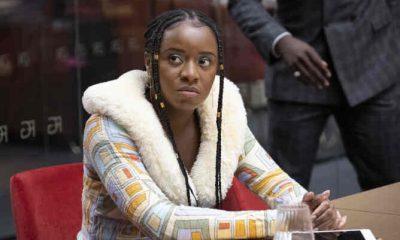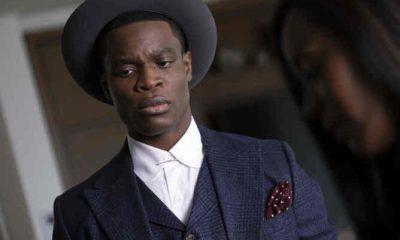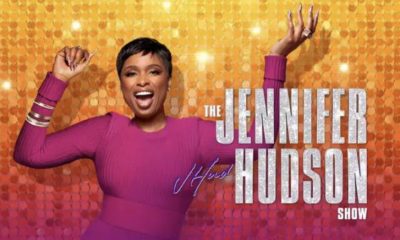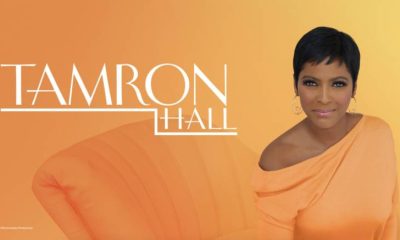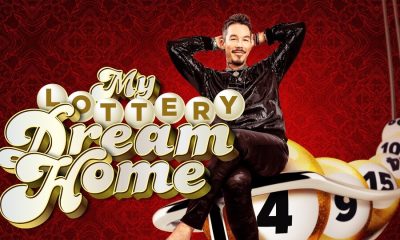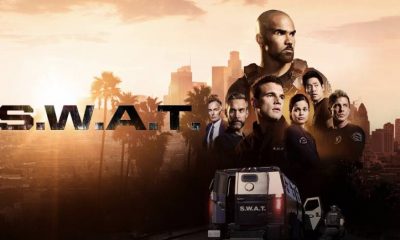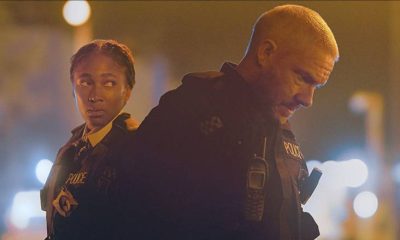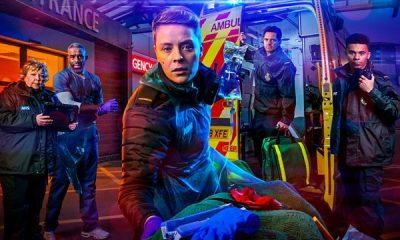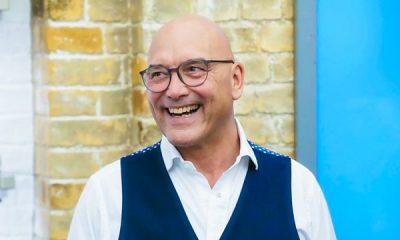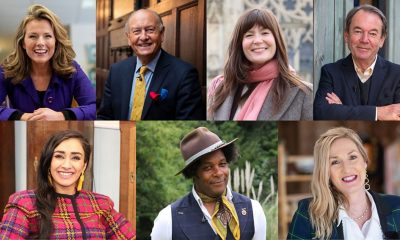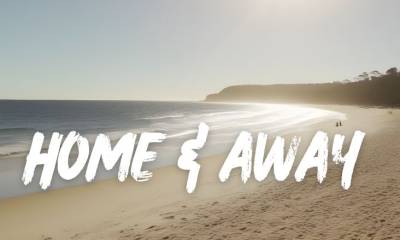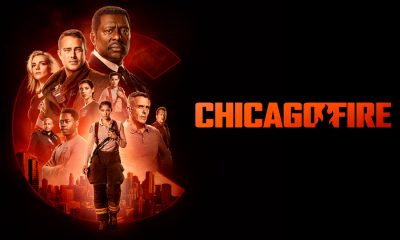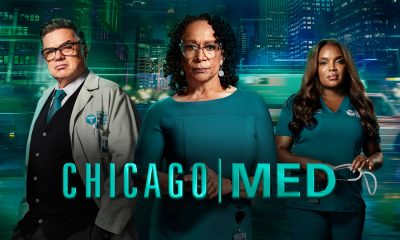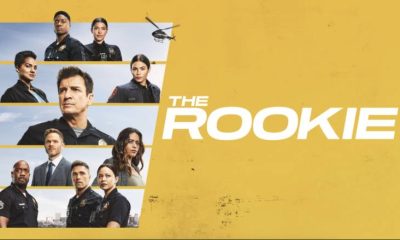Interviews
Ridley Road | Interview with Tamzin Outhwaite (Barbara)

Introduce us to Barbara…
Barbara is a hairdresser who owns and runs Oscar’s hair salon. I’ve made up this backstory that she names Oscar’s after the father of her son, who was possibly in the Navy and she got pregnant from a very short relationship, but was very much in love with him. He was obviously the love of her life and she named her salon after him.
What drew you to take part in the show?
Firstly, I’ve wanted to work with RED Production Company for a long time. I like all of their work. Then when I read the scripts and realised it was Sarah Solemani, who I’m a massive fan of, I had to take part. She said that when she was writing the role, she always had Barbara in her head being played by me. The script in itself was brilliant. I knew that it was based on the book by Jo Bloom, so I read the book which I thought was incredible.
Then I looked at the cast of actors which at the time, consisted of Rory Kinnear, Eddie Marsan, Tracy-Ann Oberman, Sam Spiro and it was really a no brainer. Ridley Road as a market, was somewhere my mum used to take me all through my childhood and my dad knew lots of the market traders. The East End of London, Hackney, was somewhere I was very familiar with and Ridley Road market held a lot of fond memories for me.
Did you like filming your scenes in the salon, did you feel like you owned it by the end of the shoot?
I loved being in the salon because it took a while for me to actually own it, but by the end I felt like it was really my salon and I was a hairdresser. Smoking in a salon in those days was such a sign of the times in the early 60s, was so representative of how it was. You would be doing someone’s hair whilst smoking and then spraying hairspray everywhere. I just loved that because it was a moment in time we obviously don’t experience in these times.
It’s the atmosphere of the place. I imagine that in the early 60s, women coming to get their hair done and getting out of the house and away from chores was a real treat. The gossip and socialising that must happen, the atmosphere. I’ll say that I was the ‘shenanigator’ – organising shenanigans – that’s what felt really good. Barbara is like the nucleus of the place, which encourages women to come and have a brilliant time while they’re having their hair done.
How impressed where you by the design team making you feel like you were in the 60s?
The design was incredible. Firstly, I loved my hair. When the hair and makeup team told me what they were doing and showed me the pieces, it just transforms you back to that time. I have photos of my mum in those times and when we were on the set, I saw so many photographs that could have been my mum with those haircuts. It all looked familiar. The colours, the oranges, the browns, and the swirls, the designs are incredible. It’s been a real treat to be on a set like that, I don’t do much period work and the 60s felt like home.
You had a lot of scenes with Agnes O’Casey. How did you find it working with her?
Working with Agnes is just a treat. It’s her first job. When we first started working together, I thought that she’s a real talent and one to watch. She’s still very fresh, humble, open and wide-eyed. In the short amount of time I’ve had with her, you realise she’s not just those things but she’s also intelligent, wise and a brilliant actress. It feels like a real treat and a pleasure to have seen her grow throughout this job and I know that in the future I’m going to hear people talking about her and I’ll be able to say, “I was with her on her first job”.
Barbara takes Vivien under her wing when she moves to London, did you find yourself also taking Agnes under your wing on set?
Agnes didn’t need taking under anyone’s wing, she really holds her own. But it was a pleasure to work with her. I still feel like I’m Agnes’ age but I’m twice her age, so it was really lovely hanging out with her. We laughed a lot but also, she’s an enchanting actress so she drew me in. She’s very special.
Barbara is the mother of Stevie, a mixed raced student. How does she deal with her son being a frequent target of racist attacks?
I think Barbara has got used to the racism that happens to her son, but it doesn’t become any less heart-breaking. I think she’s still broken every time he gets beaten up, chucked in a cell or there’s some kind of racist comment. Never mind the actual violence and prejudice that goes with him being born into a family where the mother is white and in a predominantly white set-up with the home and business. It’s really gut-wrenching for Barbara to experience her son going through this, but at the same time it becomes second nature for her. She spends a lot of time licking his wounds, quite literally and patching him up.
Did you do any research around this era before taking the part and how much of this bit of British history were you aware of?
I spoke to my dad about it because he seems to remember ‘Black shirts and fascists’ coming down the market. My dad was a black cab driver and in those times was one of the only non-Jewish black cab drivers around. I grew up around many Jewish people, in a very Jewish area. We were the only non-Jewish people on our street, so all my friends were Jewish. I always knew that there was a lot of prejudice, but I didn’t realise how bad it was in the 60s. When I spoke to my dad about it, he was telling me that a lot of his friends were market traders in those days. He remembers fascists arriving to Ridley Road, so I found out an awful lot from my Dad.
Can you tell us about working with Sarah Solemani and Nicola Shindler?
I’ve always wanted to work with RED Production Company because I love the work they do, it’s always really classy. I’ve always been a fan of Sarah Solemani too and I’ve worked with her before and I know her work is pretty unique, she’s bright and very funny. Every time I bump into her, I feel like a fan-girl. I was really excited when she said that when she was writing this, she always thought of me as Barbara, which was such a massive compliment. It was like one of those dream roles come true, it sounds like a cliché, but it was.
What has been your highlight on the show?
Working with the different people. Working with Lisa [Mulcahy], the director, having a lovely production team, the crew have been amazing, having Tracy-Ann [Oberman] and Sam Spiro around. Watching Agnes, who is becoming a star and Hannah [Traylen], who plays Chrissy an employee at the salon, who has been hilarious and brilliant. I suppose my girls in the hairdressers, which has been the bulk of it for me, has been my highlight.
What do you hope audiences take away from the show?
I hope audiences take away the sense that not long ago, this kind of fascism was going on. It’s actually extremely poignant at the moment, it’s very apt. As well as the style, the acting and the brilliant writing, the message is, this is still going on and this was in 1962 and it’s still happening. I suppose I would like them to take home that this is a great piece of work and remember maybe, that I was in it?
Do you think this series will have an international appeal?
Yes, because the 60s are a very attractive era. I’m sure Americans will think, that’s the Beatles, that’s this era. All around the world, I should imagine that London in the 60s was a really expressive time and place. When you see the design, the hair, the costumes, and the writing I think it will be a triumph.
Why should people watch Ridley Road?
People should watch Ridley Road because it’s great writing, the scripts are amazing and the story comes from truth. Agnes, who plays the lead, is fantastic and the women in it are full of style and hutzpah. I just hope everyone enjoys it.
-
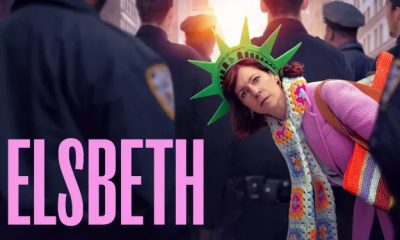
 News2 days ago
News2 days agoElsbeth, May 2, 2024, CBS, “Something Blue”
-

 News3 days ago
News3 days agoJeopardy! Tuesday April 30, 2024, Recap, Winner and Final Answer
-
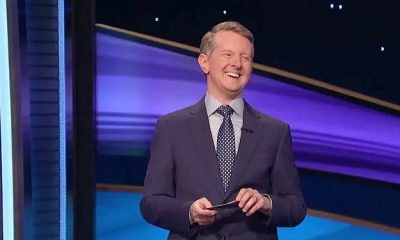
 News2 days ago
News2 days agoJeopardy! Wednesday May 1, 2024, Recap, Winner and Final Answer
-

 News3 days ago
News3 days agoThe Today Show, May 1, 2024, NBC, “Chris Pine, Billy Idol, Melissa Joan Hart”




